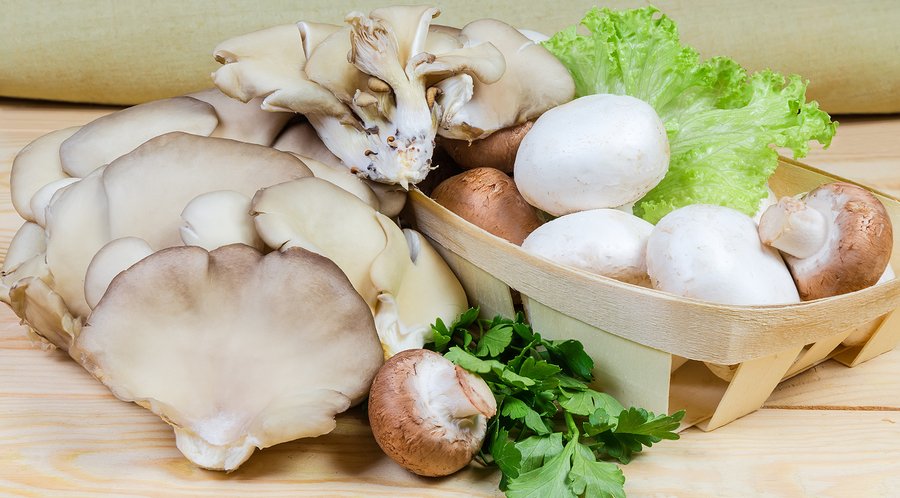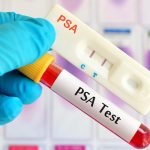Article Summary:
- Eating mushrooms three times a week or more were found to have a 17 percent reduced risk of being diagnosed with prostate cancer compared to those who ate mushrooms less than once a week.
- Prostate cancer strikes approximately 175,000 men in the United States each year, so prevention is important.
- Mushrooms have antioxidant properties and a rich in L-ergothioneine, which reduces inflammation and provides some cancer protection.
Mushrooms Protect Men From Cancer
If you are a fan of mushrooms, you may have a new reason to rejoice (at least if you’re a man). Feel free to indulge your frequent consumption of these tasty fungi because new research suggests that mushrooms might help protect men from developing prostate cancer.
The study, which took place at Tohoku University Graduate School of Medicine in Japan, found that eating mushrooms regularly is associated with a lower risk of prostate cancer.1Zhang, Shu; et al. “Mushroom consumption and incident risk of prostate cancer in Japan: A pooled analysis of the Miyagi Cohort Study and the Ohsaki Cohort Study.” International Journal of Cancer. 4 September 2019. Accessed 12 October 2019. http://onlinelibrary.wiley.com/doi/full/10.1002/ijc.32591. These results are based on an investigation that included 36,499 men ranging in age from 40 to 79. Residents of either the Miyagi Prefecture or Ohsaki, the subjects were tracked for close to 25 years. The men answered a broad array of lifestyle-related questions about their physical activity level, typical diet, use of alcohol, whether they smoke, and information was collected on their medical and family history.
Those who reported consuming mushrooms three times a week or more were found to have a 17 percent reduced risk of being diagnosed with prostate cancer compared to their peers who ate mushrooms less than once a week. And the participants who ate mushrooms once or twice a week benefited as well, with an eight percent drop in prostate cancer risk. The effect of the mushrooms was particularly pronounced in men who were 50 or older and those whose diets were heavy on consumption of meat and dairy foods and lighter on fruits and vegetables.
The Importance of Studying Mushroom’s Effects in Humans
Other research has shown links between eating mushrooms and a lower incidence of prostate cancer in cell cultures and animal experiments, but the current study is significant because it showed an impact in people and involved a large study sample. We all know that just because something demonstrates an effect in a laboratory under sterile, very precise conditions, it does not necessarily translate into the same results in the complex human body. This study overcomes that objection.
Therefore, these findings are good news, especially since prostate cancer is a very common and very deadly form of cancer. Roughly 175,000 cases are diagnosed every year in the United States alone, and the disease contributes to more than 30,000 deaths annually. If it is caught at an early stage, your doctor may suggest taking a watch and wait approach to see how aggressively the prostate cancer is progressing before taking any action. However, for those who require treatment, surgery or radiation are typically recommended, both with risks and potential side effects.
How Do Mushrooms Help Protect the Prostate?
The benefit mushrooms confer may be at least partially due to their antioxidant benefits and an amino acid they contain, known as L-ergothioneine. This amino acid reduces the oxidative stress that takes a toll on our bodies at the cellular level, which is associated with chronic inflammation and the development of cancer.
In the U.S., mushrooms are not nearly as popular as they are in Japan. The average American eats less than five grams of mushrooms daily, whereas the average intake among the Japanese men in the study was 7.6 grams per day. Including mushrooms as part of a well-balanced diet two to three times a week would certainly be beneficial. The current research wasn’t specific about what kinds of mushrooms might be best, so you might want to consider the six types shown to lower the risk of cognitive problems as a good starting point.
References
| ↑1 | Zhang, Shu; et al. “Mushroom consumption and incident risk of prostate cancer in Japan: A pooled analysis of the Miyagi Cohort Study and the Ohsaki Cohort Study.” International Journal of Cancer. 4 September 2019. Accessed 12 October 2019. http://onlinelibrary.wiley.com/doi/full/10.1002/ijc.32591. |
|---|











